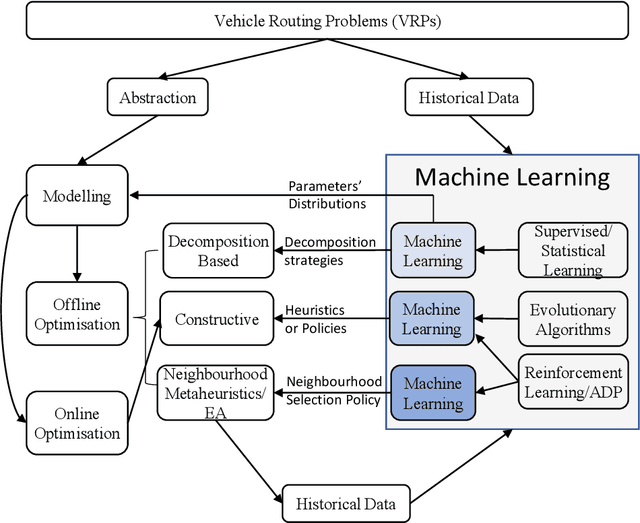Shuhui Gong
Spatio-temporal Parking Behaviour Forecasting and Analysis Before and During COVID-19
Aug 15, 2021



Abstract:Parking demand forecasting and behaviour analysis have received increasing attention in recent years because of their critical role in mitigating traffic congestion and understanding travel behaviours. However, previous studies usually only consider temporal dependence but ignore the spatial correlations among parking lots for parking prediction. This is mainly due to the lack of direct physical connections or observable interactions between them. Thus, how to quantify the spatial correlation remains a significant challenge. To bridge the gap, in this study, we propose a spatial-aware parking prediction framework, which includes two steps, i.e. spatial connection graph construction and spatio-temporal forecasting. A case study in Ningbo, China is conducted using parking data of over one million records before and during COVID-19. The results show that the approach is superior on parking occupancy forecasting than baseline methods, especially for the cases with high temporal irregularity such as during COVID-19. Our work has revealed the impact of the pandemic on parking behaviour and also accentuated the importance of modelling spatial dependence in parking behaviour forecasting, which can benefit future studies on epidemiology and human travel behaviours.
Analytics and Machine Learning in Vehicle Routing Research
Feb 19, 2021
Abstract:The Vehicle Routing Problem (VRP) is one of the most intensively studied combinatorial optimisation problems for which numerous models and algorithms have been proposed. To tackle the complexities, uncertainties and dynamics involved in real-world VRP applications, Machine Learning (ML) methods have been used in combination with analytical approaches to enhance problem formulations and algorithmic performance across different problem solving scenarios. However, the relevant papers are scattered in several traditional research fields with very different, sometimes confusing, terminologies. This paper presents a first, comprehensive review of hybrid methods that combine analytical techniques with ML tools in addressing VRP problems. Specifically, we review the emerging research streams on ML-assisted VRP modelling and ML-assisted VRP optimisation. We conclude that ML can be beneficial in enhancing VRP modelling, and improving the performance of algorithms for both online and offline VRP optimisations. Finally, challenges and future opportunities of VRP research are discussed.
 Add to Chrome
Add to Chrome Add to Firefox
Add to Firefox Add to Edge
Add to Edge